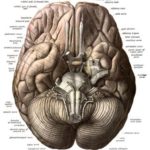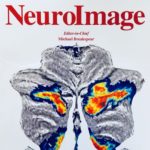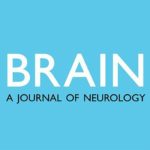PROM-Ataxia published (CCAS and PROM being used in natural history studies and clinical trials of ataxia)
The Schmahmann Lab together with the National Ataxia Foundation and with support from Biohaven Pharma developed the Patient Reported Outcome Measure for Ataxia (PROM-Ataxia). This is the first patient-derived reporting checklist of symptoms and challenges faced by patients with cerebellar ataxia, which provides critical and previously unavailable insights into the ataxias and their course...
Read More
Author: Jason MacMore
Falmouth Road Race 2021
This is the 11th year that the MINDlink Foundation is running the Falmouth Road Race to raise funds in support of the Massachusetts General Hospital Ataxia Center and the Schmahmann Laboratory for Neuroanatomy and Cerebellar Neurobiology. Dr. Schmahmann, the Founding Director of the MGH Ataxia Center is working together with his team of colleagues across multiple disciplines in their pursuit of providing care and answers for those who are afflicted with ataxia, and other neurological disorders.
...
Read More
Recent articles on the cerebellum

The family of a boy without a cerebellum found out how to take its place - The Economist (by Hal Hodson)The Cerebellum Is Your "Little Brain" - and It Does Some Pretty Big Things - Scientific American (by Diana Kwon)LittleBrain: A gradient-based tool for the topographical interpretation of cerebellar neuroimaging findings - PLOS one (by Guell et al)Cerebellum May Drive Addictive Behavior via Dopamine Release | Psychology Today (by Christopher Bergland)
Read More
3 Reasons the “Little Brain” Might Become the Next Big Thing

By Christopher Bergland
As an evidence-based journalist who follows newsworthy trends in neuroscience, I’ve been keeping an eye on the rising popularity of the cerebellum (Latin for “little brain”). In recent weeks, this often-overlooked subcortical brain region has skyrocketed to buzzword status. I have a hunch “cerebellum” might be on the verge of becoming a household word such as “amygdala,” “hippocampus,” and “prefrontal cortex” that have made the rare leap from the esoteric lexicon of ...
Read More
From Theory to Therapy: The MGH Ataxia Unit

The Massachusetts General Hospital (MGH) Ataxia Unit was the first and is now the most active such clinic in the US, providing comprehensive care to patients across the age spectrum who have disorders of cerebellum and related conditions. Started in 1994, and under the leadership of its founding director Jeremy Schmahmann, MD, the Unit has grown to three full-time attending ataxia neurologists and six Fellows who rotate through the Unit from the neurology divisions of movement disorders, general...
Read More
Neuroimage paper recognized by MIT’s McGovern Institiute
Our Neuroimage paper on motor and cognitive representations in cerebellum has been included in a new publication from the MIT McGovern website. Postdoctoral fellow Xavier Guell is the lead author.
https://mcgovern.mit.edu/news/news/charting-the-cerebellum/
Read More
Dana Mauro to join the Schmahmann Lab

Recently, we had a wonderful meeting with Dana Mauro to welcome her to our team! She met with members of the Schmahmann lab as well as our MGH PR team and Development office. Dana will be helping broadcast about ataxia care and research in the Massachusetts General Hospital Ataxia Unit and Schmahmann Lab.
You can see Dr. Schmahmann appear on a recent podcast of Dana's here.
To learn more about Dana's "Did You Know" podcast, check out her Facebook page. Past podcasts can be found on...
Read More
A Man’s Incomplete Brain Reveals Cerebellum’s Role In Thought And Emotion
Listen to and read about this extraordinary young man and his journey with cerebellar agenesis - life without a cerebellum!
And see how this relates to the role of the cerebellum in autism, schizophrenia, and social cognition.
Read More
Cerebellar Cognitive Affective Syndrome identified in Spinocerebellar Ataxia Type 21

Cognition is affected in many of the inherited ataxias, and sometimes that is the main problem patients have to deal with. We recently teamed up with colleagues in Brazil to draw attention to the existence of the cerebellar cognitive affective syndrome (CCAS) in Spinocerebellar Ataxia Type 21 (SCA 21). This is described in our letter and reply just published in the journal, Brain; Cognition in SCA21 reflects developmental and adult onset cerebellar cognitive affective syndrome, REPLY-Cognition i...
Read More
